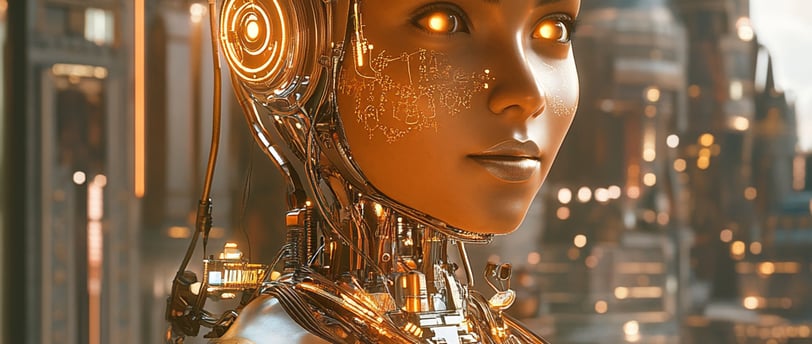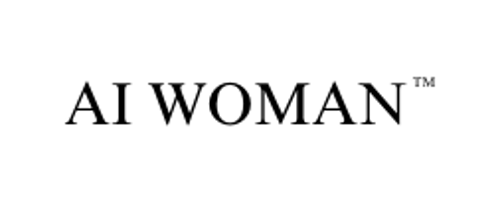An Equitable Future
Balance and Harmony
4/8/20254 min read


Building a More Equitable Future: Why Women's Voices Matter in Ethical AI ✨
In a world increasingly shaped by artificial intelligence, ensuring diverse perspectives guide its development isn't just good ethics—it's essential for creating technology that truly serves everyone.
🌈 The Missing Perspectives in AI
When Sarah, a Black woman with natural hair, attempted to use a popular virtual makeup app, the facial recognition consistently failed to detect her features. Meanwhile, Emma, a white woman with straight hair, had no such issues. This wasn't a random glitch—it was a symptom of a much larger problem in AI development.
The truth is uncomfortable but clear: today's AI systems often reflect and sometimes amplify the biases of our society. From facial recognition that works better on lighter skin tones to voice recognition that struggles with female voices, to hiring algorithms that penalize résumés with women's colleges—the evidence is mounting that AI developed primarily by homogeneous teams creates technology that works best for people who resemble those teams.
"The question isn't whether AI will reflect societal biases, but whose biases it will reflect. This is why diversity in AI development isn't optional—it's essential." — Dr. Timnit Gebru
💖 Why Women's Perspectives Transform AI Development
When women participate equally in creating AI systems, the technology fundamentally changes. Consider these real-world examples:
Healthcare AI: A team led by female researchers at Stanford developed an algorithm to detect heart disease symptoms in women that previous AI systems had missed. Why? Because they specifically trained the system to recognize that women often present different symptoms than the "classic" male symptoms that had dominated medical education and previous AI training data.
Voice Assistants: After mounting criticism about female-voiced assistants responding passively to abusive language, a team with strong female leadership redesigned a major voice assistant's responses to push back against harassing comments—teaching millions of users, including children, about appropriate interaction boundaries.
Resume Screening: A predominantly female team at an HR tech startup identified that their initial AI hiring algorithm was penalizing career gaps—which disproportionately affected women who had taken time for caregiving. They redesigned the system to evaluate skills and potential rather than continuous employment, resulting in more diverse hiring recommendations.
🌱 The Ripple Effects of Inclusive AI
When we build AI with diverse teams, particularly including women and people from underrepresented groups, the benefits extend far beyond the technology itself:
Economic Justice: AI is reshaping access to loans, housing, healthcare, and employment. When these systems work equally well for everyone, economic opportunities become more fairly distributed.
Representative Culture: AI increasingly shapes the media we consume, the art we see, and the information we receive. Inclusive AI helps ensure our cultural landscape reflects our full diversity.
Safe Technology: For women and marginalized communities, the stakes of biased AI can include physical safety—from security systems that don't recognize certain faces to emergency response systems that don't understand certain accents.
Future Generations: Perhaps most importantly, when young girls see women shaping AI ethics and development, they can envision themselves in these roles, creating a virtuous cycle of inclusion.
🔮 Imagining the Alternative Future
Picture this: A world where AI has developed with equal input from women and people of diverse backgrounds from the very beginning.
In this world, healthcare algorithms recognize symptoms accurately across genders and ethnicities. Voice assistants understand diverse speech patterns and accents. Hiring algorithms evaluate talent fairly regardless of gender, background, or career path. Security systems protect everyone equally. And perhaps most transformatively, AI helps address historically entrenched inequalities rather than reinforcing them.
This is the world we're working toward at AI Woman—one where technology develops with balanced input, where opportunities are equally accessible, and where every woman sees herself as capable of shaping our digital future.
✨ The Path Forward: How You Can Make a Difference
Creating ethical, inclusive AI isn't just for technologists or ethicists. Every one of us has a role to play:
For Women in Tech: Your voice and perspective are invaluable. Speak up in meetings, mentor others, and advocate for ethical considerations in every project.
For Tech Learners: As you build your skills, incorporate ethical thinking from day one. Ask who might be harmed or excluded by the systems you're learning to create.
For Tech Users: Ask questions about the technology you use. How diverse was the team that created it? Does it work equally well for everyone? Your consumer choices and feedback matter.
For Everyone: Support organizations and initiatives working toward ethical, inclusive AI. Share stories that highlight both the problems and solutions. And encourage the women and girls in your life to see themselves as potential shapers of our technological future.
🌟 A Personal Invitation
The story of AI is still being written. Unlike many technologies that were developed and solidified before issues of inclusion were widely discussed, we have the opportunity to build AI differently from the ground up.
This isn't just about fairness in abstract terms—it's about creating technology that truly improves life for everyone. It's about ensuring that the transformative benefits of AI reach all communities. And it's about shaping a future where technology amplifies our shared humanity rather than dividing us.
At AI Woman, we're committed to making this vision a reality. We invite you to join us in building an AI future that reflects the rich diversity of human experience—because only then can we claim to be creating truly intelligent systems.
How are you thinking about ethics in your interactions with AI? Share your thoughts in the comments below, and let's continue this crucial conversation.
This blog post is part of our Ethics & Impact series at AI Woman, where we explore how AI affects women's lives and how women can shape AI development for the better. Subscribe to our newsletter for more insights at the intersection of technology and inclusion.
